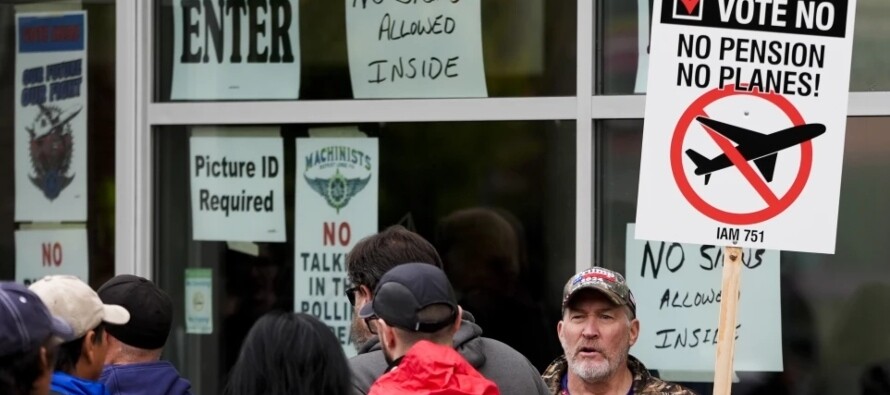
On Wednesday, Boeing reported losses of more than 6,000 million dollars in the third quarter. Unionized workers at Boeing's factories in Renton and Everett, Washington, are responsible for assembling aircraft such as the 737 Max, the 777, and the cargo plane 767. The last rejected contract offer included a 35% wage increase over four years.
Union leaders in Seattle announced that 64% of members of the International Association of Machinists and Aerospace Workers voted against Boeing's contract proposal. Jon Holden, the union leader, stated that after years of sacrifices, they still have ground to recover and hope to resume negotiations soon.
Amid federal investigations due to incidents involving the 737 Max aircraft, the workers' strike has paralyzed production at Boeing, depriving the company of necessary revenue from the delivery of new aircraft. The dispute includes union demands for wage increases and the restoration of the pension plan frozen a decade ago.
The strike, which began on September 13, has been a challenge for Boeing CEO Kelly Ortberg, who assumed office in August. Amid significant financial losses and damage to the company's reputation, Ortberg seeks to implement fundamental cultural changes to revitalize Boeing. The company's financial results have been negative, with significant losses in the last quarter and an unfavorable quarterly close.
Boeing's revenue reached 17,840 million dollars, in line with Wall Street expectations. Larry Best, customer quality coordinator, stated that restoring the frozen pension plan was a priority, in addition to the wage increases rejected in the last contract offer.












